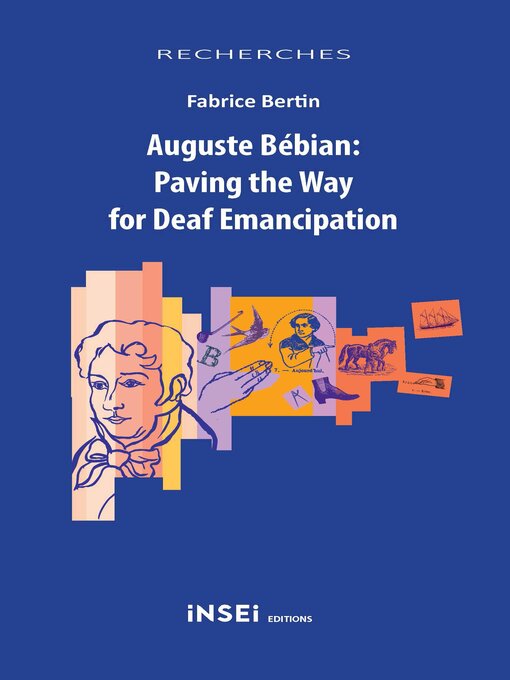- All Nonfiction
- Indigenous Authors - Nonfiction
- Indigenous Authors - Memoir & Autobiography
- Justice, Equity, Diversity and Inclusion in Education
- See all nonfiction collections

To some, he is a mythical figure; to others, he is unknown. Auguste Bébian (1789-1839) reflects society's ambivalence toward Deaf history: sometimes recognized, often ignored. In the wake of Abbé de l'Épée, whose name is remembered in posterity and who demonstrated that the large-scale education of Deaf people was possible, Auguste Bébian was nonetheless a key player in an unprecedented upheaval, which in many ways went beyond the educational sphere. The goal of this research on Auguste Bébian, combining biographical elements and analysis of his thinking in unprecedented ways, is not to deconstruct the myth, but rather to decipher the messages it conveys, and to understand what it tells us, indirectly, about the Deaf experience.
Born in 1789 in Guadeloupe, part of the French West Indies, it was on the other side of the Atlantic Ocean, in France, that Auguste Bébian fulfilled most of his destiny. While living at the National Institution for the Deaf in Paris at the beginning of the 19th century, his daily contact with the young students made him the first known hearing person in France to achieve true mastery of sign language, the natural language of Deaf people, and a deep understanding of its inherent culture. On becoming a teacher, he constantly defended the use of sign language as a linguistic system in its own right in order to awaken the intelligence of Deaf children, to whom "we pay no more attention than to the sunlight that shines on us every day." His numerous publications display a level of modernity rarely seen before or since. This biographical and historical study shows how the passion evinced by Auguste Bébian was a crucial link in the chain of events that led to the emancipation of Deaf people.
-
Creators
-
Publisher
-
Release date
September 4, 2024 -
Formats
-
OverDrive Read
- ISBN: 9781954622647
-
EPUB ebook
- ISBN: 9781954622647
- File size: 11225 KB
-
-
Accessibility
-
Languages
- English
Formats
- OverDrive Read
- EPUB ebook
Languages
- English
Why is availability limited?
×Availability can change throughout the month based on the library's budget. You can still place a hold on the title, and your hold will be automatically filled as soon as the title is available again.
The Kindle Book format for this title is not supported on:
×Read-along ebook
×The OverDrive Read format of this ebook has professional narration that plays while you read in your browser. Learn more here.